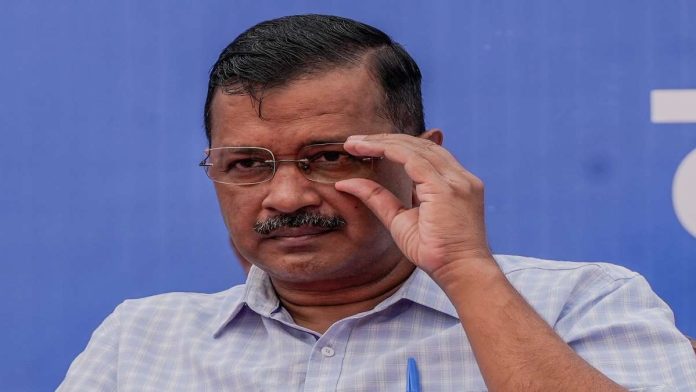The Supreme Court on Thursday refused to take action against the statements made by Delhi Chief Minister Arvind Kejriwal that if votes were given to the Aam Aadmi Party (AAP), he would not have to go back to jail.
The Bench of Justice Sanjiv Khanna and Justice Dipankar Datta passed the comments while hearing Kejriwal’s petition challenging his arrest by the Enforcement Directorate under the Prevention of Money Laundering Act (PMLA) in connection with the alleged Delhi liquor policy case.
The Apex Court had last week allowed the release of Kejriwal on interim bail till June 1 for the purposes of election campaigning.
One of the bail conditions imposed by the Court was that he should not speak in public about his role in the case.
Appearing for ED today, Solicitor General of India Tushar Mehta brought the attention of the Court to the statement of Kejriwal.
He quoted Kejriwal as saying that if people voted for broom (election symbol of AAP), he would not have to go to jail on June 2.
Terming the statement as a ‘slap’ on the system, the SG urged the Bench to look at Kejriwal’s statements, adding that the petitioner should be treated as any other person. He assured that he would not say anything about the case, noted SG Mehta.
However, the Bench said they only asked the petitioner not to discuss his role in the case.
Regarding the jail statement, the top court of the country said that was Kejriwal’s assumption. The order was very clear, and specifically said that the Court was not making exception to anybody.
With this, the Bench refused to go into the matter.
Representing the national convenor of AAP, Senior Advocate Abhishek Manu Singhvi contended that he was going to file an affidavit regarding a statement made by the ‘highest’ Minister of the country about the Supreme Court’s interim bail to Kejriwal.
The Senior Counsel referred to the statement made by Union Minister Amit Shah in a press interview that the interim order of the Apex Court on Kejriwal was not routine and that many people felt that special treatment was given to the Delhi Chief Minister.
The Bench observed that it was open to the criticism of the judgment.


